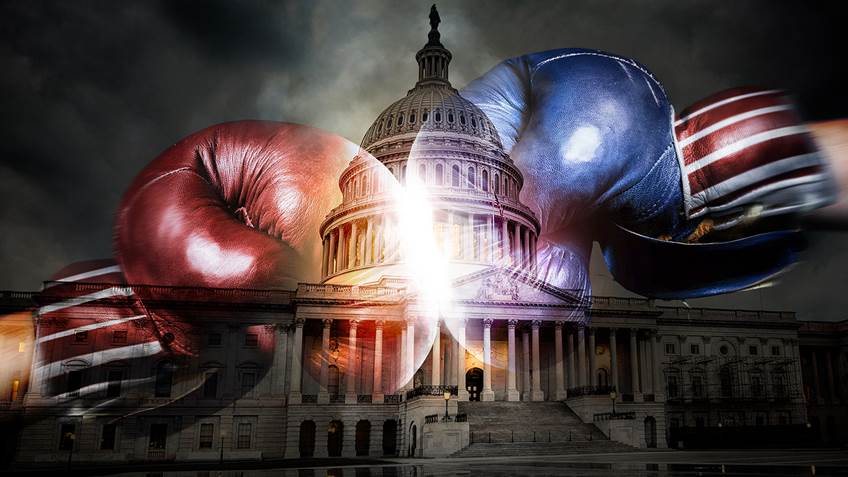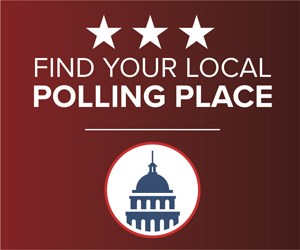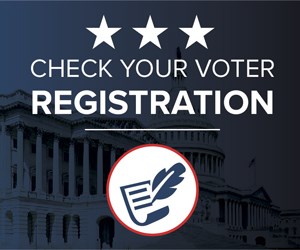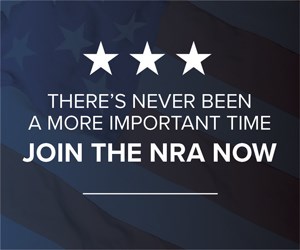It’s an encouraging sign of progress that when it comes to the issue of firearms in America, the pro-freedom viewpoint establishes the terms of the debate.
You’d be hard-pressed these days to find a gun control advocate who would admit to wanting to repeal the Second Amendment and ban private gun ownership. Yet gun control proponents have the same goals as they always have.
At best, they look to Australia and Europe as their guide. Gun ownership might still be possible for a dedicated or privileged few, but only at the discretion of a designated official—and even then subject to such intrusive, expensive and burdensome bureaucracy so as to scare off all but the most dogged or well-heeled.
At worst, they embody the Hillary Clinton view that the Supreme Court was “wrong” on the Second Amendment’s individual right and that taxpayer-financed surrender programs should be undertaken at the national level.
Too many Americans already live under some version of the first scenario. Lawfully owing a gun in Boston, Los Angeles, Newark, New York City, San Francisco or Washington, D.C., is not much easier than in the European capitals that are the subject of hero worship among these cities’ ruling classes. Lawfully carrying a gun for self-defense is wholly out of reach for the common man or woman.
But the modern gun control movement insists that it “supports” the Second Amendment and merely wants “reasonable regulation” aimed at reducing “gun violence.”
Again and again, they speak of wanting a “conversation” and finding “middle ground.” But the only thing they want to talk about is where to start with further restrictions on the Second Amendment-protected rights of law-abiding Americans. And their idea of “middle ground” is phasing in their gun control schemes by increments.
And here’s where I begin the conversation. Guns in the hands of law-abiding Americans are a force for good. We should encourage that. We should make responsible gun ownership as straightforward and accessible as possible.
Self-defense is an inalienable human right. Hunting contributes to the sound management of natural resources, strengthens ties within families and between friends, and instills a love of nature and the outdoors. The shooting sports build character, awareness and the competency necessary for responsible gun ownership.
Guns should be available to rich people, poor people and everybody in between. They should be available to residents of cities, suburbs, rural areas and small towns.
The only valid basis of discrimination in determining who should be entitled to own a gun is distinguishing between those who would use them for lawful purposes and those who would use them to commit crime. In making this determination, we should always respect the presumption of innocence and make the government justify curtailment of rights with due process and solid evidence. Americans should never have to justify the exercise of their constitutional rights.
We should always sternly punish those who use guns illegally to harm others. But we should never punish someone simply for wanting to exercise their birthright to keep and bear arms.
These are the principles on which the NRA’s legislative agenda is based. They’re not difficult to understand. For most people, they’re practically second nature.
It’s no wonder, then, that we continue to make great progress on that agenda.
As I write this, at least 50 pro-gun bills have been signed into law at the state level in 2017, with eight more awaiting action by governors. Iowa enacted one of the most significant pro-gun legislative packages in the state’s history, and recently New Hampshire and North Dakota joined the growing list of states that recognize the right of law-abiding residents to carry concealed handguns without a permit.
And pro-gun bills are proliferating in Congress, with your NRA working day and night to ensure that this historic opportunity to move federal legislation does not pass us by.
National reciprocity is still our top legislative priority. Every state now has some legal mechanism for its own residents to carry a concealed handgun for self-defense in public. Some 15 million Americans have concealed-carry permits, with perhaps tens of thousands more lawfully carrying without permits in the 12 “constitutional carry” states that don’t require them.
Opponents of the law say dangerous people will be authorized to carry. But federally “prohibited persons” (including felons, drug addicts, domestic violence misdemeanants and those with prior mental health adjudications) are excluded under the legislation. And when the opponents claim that some states have higher permitting standards than others, what they really mean is that some states routinely deny permits to most law-abiding applicants who cannot demonstrate an extraordinary “need” to have one.
What sort of need qualifies? That’s up to the officials who issue the permits. But in practice, this means celebrities like actor Robert DeNiro (who has said publicly he’d like to punch the president in the face) can get a carry permit in New York City, but a mild-mannered tailor or grocer cannot. It also leads to the sort of corruption that has arisen repeatedly in New York City, where licensing officials were recently charged with accepting bribes to expedite or issue permits.
That’s not how we typically handle civil rights in America. And it will be among my proudest professional accomplishments to consign that elitist, discriminatory and corrupting double standard to the dustbin of history.
In addition to the national reciprocity legislation, we are supporting a number of other game-changing bills this session:
The Hearing Protection Act would free suppressor sales from expensive taxes and bureaucratic red tape, greatly enhancing the accessibility of technology that protects the health of shooters and results in a substantially better shooting experience. Lawful suppressor ownership has nearly doubled just in the last three years, with no perceptible increase in their use in violent crime. There’s simply no justification for making eligible Americans wait nine months or more—as is the case under the current regime—to purchase suppressors and to enforce taxes originally designed to put the purchase of these items out of reach.
The Lawful Purpose and Self-Defense Act would reform the outdated “sporting purposes test” that currently muddies federal gun control law. Among other things, this test governs the importation of rifles and shotguns, the type of ammunition exempted from the federal “armor-piercing ammunition” ban, and whether big-bore rifles and shotguns are considered “destructive devices” under the National Firearms Act. It has been abused by anti-gun administrations since the days of Bill Clinton, and it ignores the fact that defensive uses, not “sports,” lie at the heart of the Second Amendment. This act would ensure that all lawful uses of firearms and ammunition would have to be considered in making these legal determinations.
The Recreational Lands Self-Defense Act would finally allow for the carrying of firearms for defensive purposes on Army Corps of Engineers water resource development projects, consistent with the law of the surrounding state.
And other bills would make critical reforms to the interstate transportation provisions of the Firearm Owner’s Protection Act (FOPA). That law was originally supposed to protect the interstate transport of unloaded, inaccessible firearms for lawful purposes, but it has been defied by anti-gun jurisdictions and all but nullified by activist courts. NRA-supported legislation would reverse this case law, restore FOPA’s original intent and provide remedies for persons whose rights under the law are violated so anti-gun jurisdictions could no longer violate the federal protections with impunity.
I’m asked all the time whether any of this legislation will actually become law.
I don’t have a crystal ball, but I can say that your NRA has never been stronger or more determined. We have higher approval ratings than the national media or either major political party and a broad base of support across the country.
Before 2008’s Heller decision, some had dismissed the Second Amendment as a relic. But now even mainstream gun control proponents mouth support for the right to keep and bear arms.
Then there’s you, the American gun owner. Your passion, your commitment to your rights and your responsible, proactive behavior regularly sways the opinions of lawmakers.
I go to work every day believing in our chances for success. When it comes to the “conversation” about guns in America, I believe now more than ever the pro-freedom viewpoint will have the last word.











